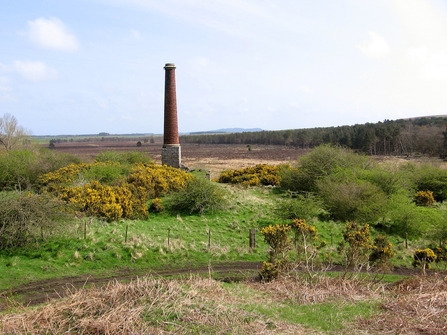
Ford Moss reserve - a lowland raised peat bog and Site of Special Scientific Interest. Image by Duncan Hutt.

Ford Moss reserve - a lowland raised peat bog and Site of Special Scientific Interest. Image by Duncan Hutt.
The UK Government has announced proposals to ban heather burning on some peatland in England: New proposals to ban heather burning on peatland to protect air, water and wildlife - GOV.UK.
Northumberland Wildlife Trust welcomes the move but say all peatland should be protected from burning because of the damage it causes to wildlife and detrimental impact on air quality, carbon emissions and flood prevention.
The proposals which are out for public consultation could mean that an extra 146,000 hectares (ha) of upland peat areas will be protected from burning, leading to 368,000 ha in total to be protected.
In this region, the Northumberland Peat Partnership team, led by Northumberland Wildlife Trust, spent 2024 surveying almost 4,000 hectares of peatland - the equivalent to almost twice the size of Kielder Water, with the goal of restoring and reversing the damage caused by previous harmful activities.
Restoration work has been ongoing at Whitelee Moor since September 2024, and the Partnership is excited for work to begin on The Wou in Thirlwall this spring.
Nicola Thompson, Northumberland Wildlife Trust Peatland Programme Manager says:
“The proposal to extend the ban on the burn is most welcome. Burning peat is an extremely damaging activity, and so we're really pleased that the government is taking the issue seriously. A ban will be good news for the air that we breathe, for the water we drink, and for the natural carbon cycle – and it will mean less flooding for people. It’s also brilliant news for wildlife.
“But we need to see all burning of peatland banned. Burning kills the species that rely on precious peatlands - from rare bog-mosses and moorland birds to dragonflies and adders. The practice is entirely unnecessary - extensive evidence shows that alternate forms of moorland management, particularly blocking up drains and restoring water to natural levels, works much better than burning.
“Regular burning of peatlands can cause severe wildfires. Over the years the practice has replaced wet sphagnum moss with habitats that are dominated by heather and sedges - and these plants are much more susceptible to wildfire. Bringing back wetter sphagnum rich blanket bog will help prevent wildfires.
“As the climate and nature emergency deepens, banning peatland burning can’t come soon enough. Our designated sites - Sites of Special Scientific Interest, Special Areas of Conservation and Special Protection Areas - should have been protected from burning long ago. It is now time to extend a burning ban to all peatlands - designated or not”.
The consultation is available at Heather and grass burning in England - GOV.UK and will run until Sunday 25th May 2025.